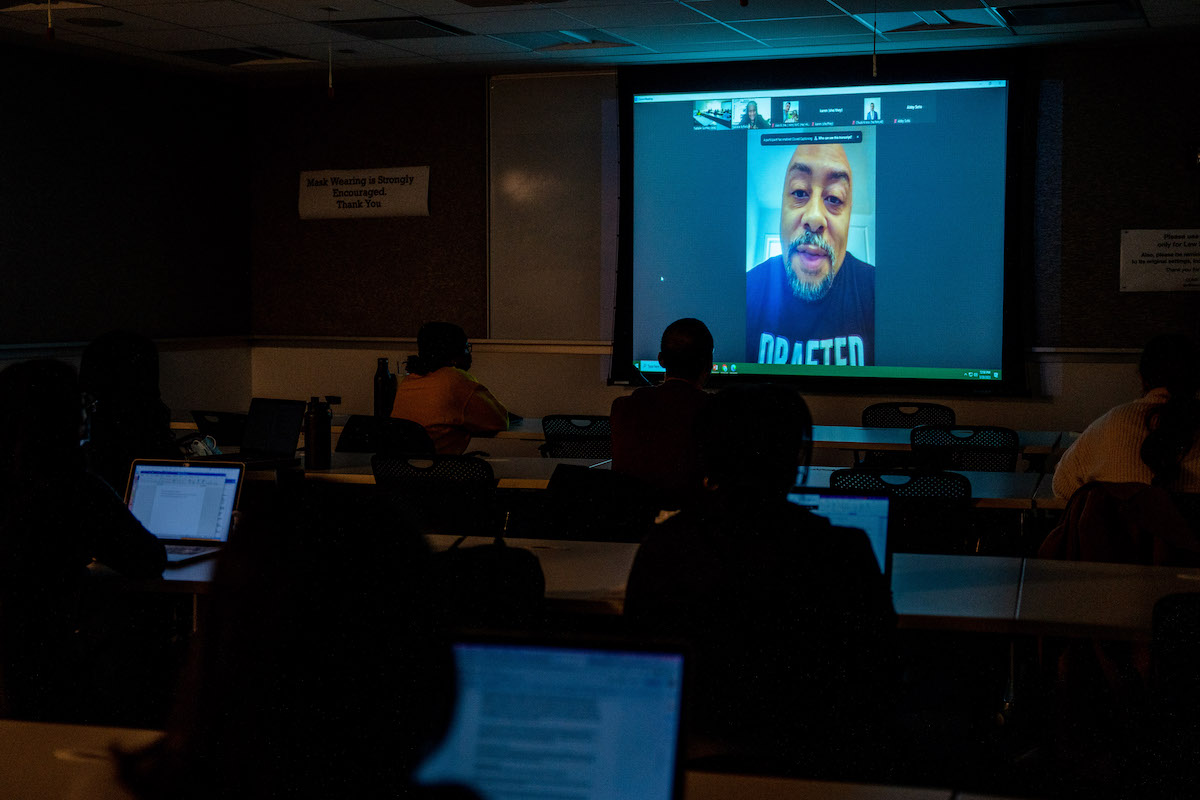This semester’s Law, Media and Public Discourse students heard from a journalist and academic, an attorney and CUNY Law adjunct professor, and an exonerated man at the heart of the 1989 Central Park jogger case that has come to define racist policing and media coverage of crime.

Professor Natalie Gomez-Velez had the honor of hosting three special guests who spoke to the profound experience and lasting impact of the case of The Exonerated Five, formerly known as The Central Park Five. These Black and Latino men were wrongfully convicted of rape in 1989 when they were young teenagers, but their story is one of resilience, justice, and hope.
Joining the class discussion was CUNY Law Adjunct Professor Jonathan Moore, who later represented four of the five men in civil court in 2002, including Raymond Santana, Junior, who also joined the class discussion via Zoom, and Natalie Byfield, a former journalist who covered the case and is now a Professor of Sociology and author of Savage Portrayals, a groundbreaking analysis of how race, sex, and class played out in the media coverage of the case.
Professor Gomez-Velez’s course “Law, Media and Public Discourse” is designed to help law students think about media engagement as a key lawyering skill. The course discussion of the Exonerated Five was a prime example of what sets the CUNY Law experience apart. The conversation delved into the importance of understanding the cognitive schema underlying how people think about crime and how unspoken narratives shape public discourse around criminal cases. Byfield highlighted how seemingly neutral words and phrases—such as “Northern Central Park”—can serve as shortcuts used by media to signal race and class and shape public opinion about who is presumed to be “criminal.”
Santana shared his first-hand account of being falsely accused and wrongfully convicted, and how his relationship with his attorneys helped him through the ordeal. He emphasized that his experience was not a case of “wrong place, wrong time,” but rather the result of systemic racism and discrimination. He noted how necessary it is to raise awareness about his and similar cases to prevent this kind of harm from recurring.
Moore shared his perspective as an attorney who helped settle the wrongful conviction civil rights lawsuit for $40 million in 2002. He emphasized the importance of strategic thinking and the challenges of civil rights cases where the stakes are incredibly high for clients and society at large.
The students engaged each of the speakers with thoughtful questions and comments, emblematic of the kind of education we strive for at CUNY Law, where students are encouraged to think critically, engage with real-world issues, and challenge the systems that perpetuate injustice all while keeping a real person’s needs at the center of the work. Prospective law students can take note of the unique and powerful experiences to be had at CUNY Law, where the faculty, students, and guest speakers are committed to social justice and the pursuit of a more equitable legal system
